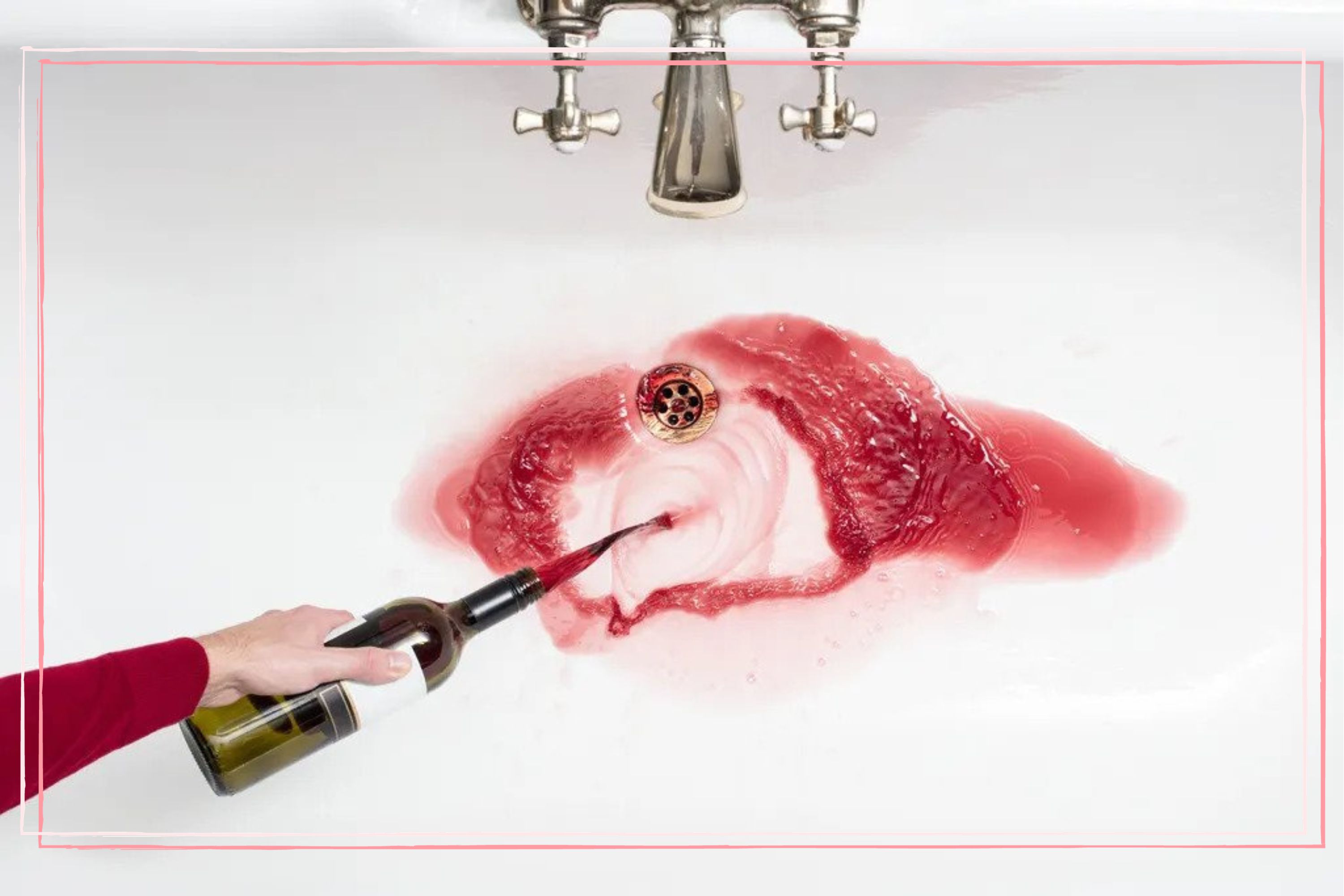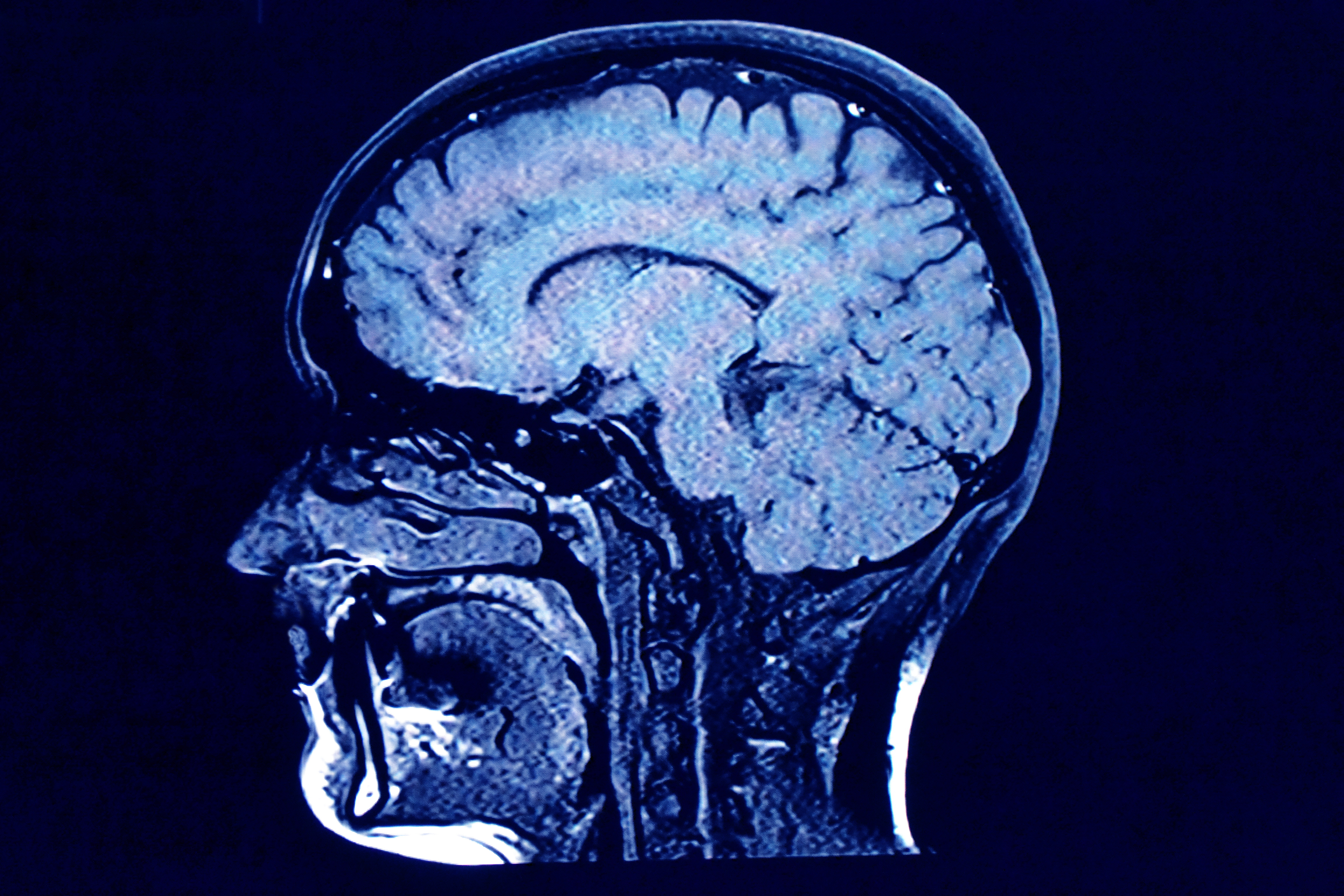17 benefits of not drinking alcohol - including just how much it affects your sex life - explained by the experts
Better health, glowing skin and more restful sleep are just a few of the other benefits of not drinking alcohol


The benefits of not drinking alcohol are significant - ditching the drink can dramatically boost your mental and physical health.
Making the decision to give up alcohol can seem like a huge life change for some, but taking the plunge comes with numerous benefits - whether that's improving your health or never googling how to prevent a hangover again. Plus, there are some great non-alcoholic wine options out there these days. The negative effects of alcohol on skin, the brain, the mood and sleep patterns all eventually disappear when you stop drinking, which is why Dry January and 'Stoptober' prove popular, with some ditching booze for good after just one month sober.
Nathan Penman, Clinical Manager at Nuffield Health, explains, "The list of benefits from giving up alcohol is lengthy, and it can impact nearly every aspect of your lifestyle. Alcohol is a toxin that our body needs to work overtime to remove from the system so while it is doing this, other areas get neglected."
If you or anyone you know is struggling with alcohol misuse, or need support in regard to consumption, visit your GP or find out more via Drink Aware or the NHS website.
Benefits of not drinking alcohol
1. Ditching alcohol is better for our brains
It's no surprise to learn that the classic signs of drunkenness - including slurred speech, poor memory and slower reflexes - are all the result of alcohol’s impact on the mind. Research from the University of Boston unpicks this, with their study finding that alcohol blocks the chemical signals (neurons) between brain cells. And this in turn triggers these common side effects.
Meanwhile, one alarming University of Tasmania study also showed that long-term heavy drinking can shrink the frontal lobes of our brain and impair our thinking skills.

Dr Deborah Lee from Dr Fox Online Pharmacy explains, "Drinking regularly damages the brain over time by affecting the ability of brain cells to make new neural connections. However, within one year of drinking much of this brain damage will have reversed. You will notice you are thinking more clearly and be better at decision-making."
Indeed, research has shown that the brain can completely re-heal the damage done by alcohol when people go cold turkey.
Parenting advice, hot topics, best buys and family finance tips delivered straight to your inbox.
One German study published in Alcohol: Clinical and Experimental Research found that lost grey matter (responsible for processing information in the brain) began regenerating in alcoholics after two weeks of abstinence.
2. Giving up drinking can reduce the risk of Dementia
While we now know that giving up alcohol leads to better cognitive function, many people might not know that in extreme cases, excessive alcohol consumption over a lengthy period of time can lead to brain damage and may increase the risk of developing dementia.
This is supported by one five-year study published in The Lancet, which presented some scary statistics. Researchers observed French hospital admissions between 2008 and 2013, and found that of those diagnosed with early-onset dementia, 38.9% of the cases were related to alcohol and alcohol misuse.
Canadian researchers similarly found that alcohol contributed to roughly 29% of all dementia cases in a 2012 University of Montreal study.
3. Not drinking alcohol can help you lose weight
Alcohol does no good to our waistlines, as it is high in calories and slows down the metabolism. Nathan explains how ditching alcohol can lead to weight loss. "To achieve weight loss, a calorie deficit must be adhered to. Alcoholic drinks contain a lot of calories which our bodies can’t necessarily use for anything as there is no nutritional value in it," he says.
"For example, if someone were to drink six pints of beer weekly (which is the recommended amount of 14 units) this would equate to about 1,000 calories. If a person is trying to achieve weight loss, cutting this out removes a substantial chunk of weekly calorie intake, which will make it easier to achieve a consistent deficit over time."
Indeed, one study published in the European Journal of Nutrition has shown that heavy alcohol consumption was a contributor to abdominal obesity. However, it's worth bearing in mind that when you give up alcohol, you won't see this benefit right away. Some people who go sober will notice a craving for sweet food as the body misses the sugar from alcohol. If this is the case, go with it, it's better to cave in to a bag of giant buttons than a bottle of wine.
4. Your body can absorb more vitamins and minerals when you stop drinking alcohol
We can all make the effort to eat a healthy breakfast and a salad here or there. But did you know that a few too many tipples everyday can affect the nutrients you reap from your food?
Research by the National Institute of Alcohol Abuse and Alcoholism found that chronic drinkers showed “evidence of malnutrition” and bodies lacking in “amino acids, proteins and certain vitamins”.
Dr Deborah Lee explains, "Alcohol inhibits the absorption of some essential vitamins and minerals from the gut – notably vitamin B1 (thiamine), vitamin B12, folate, iron and zinc. Heavy drinkers are often malnourished and show signs of vitamin and mineral deficiencies."
Unfortunately, this means it's no use kidding yourself into thinking a kale salad for dinner will counteract a bottle of bubbly.
5. Ditching alcohol improves your sleep quality
This one can be quite confusing. After all, most of us treat ourselves to a huge lie-in after a night out. Nathan helpfully explains, " While alcohol has sedative qualities and therefore can make you fall asleep faster, the quality of that sleep is affected as your liver is having to work to clear the toxin from the system."
He adds, " Alcohol limits the amount of REM (rapid eye movement) sleep that we get per night and as a result, this can impact concentration levels, productivity, and our ability to learn new information and create new memories."
One study published by the National Institute on Alcohol Abuse and Alcoholism found that alcohol contributes to sleep deprivation and aids tiredness the day after a night on the booze, thus explaining the side of exhaustion that normally accompanies a heavy hangover.
6. You'll be better hydrated if you stop drinking alcohol
Do you ever wonder why a boozy night out with friends includes several trip to the bathroom? One study in the Journal of Physiology shows that alcohol is a diuretic, meaning means that it affects the kidneys and makes you urinate much more than you actually take in.
Headaches and ‘dry as a desert’ mouth the morning after are just some of the physical effects of dehydration. But alcohol also causes our skin to look dull and lifeless, and causes dark circles under eyes the next day.
Dr Lee says, "Being dehydrated is unpleasant as it causes a dry mouth, blurred vision, dizziness, headaches, and tiredness. It can also raise your blood pressure - as does alcohol - increasing your risk of a heart attack or a stroke. When you stop drinking, all of this will quickly improve, and you will feel so much better."
7. Not drinking alcohol can reduce the amount of fat in your liver
Our liver bears the brunt of the work when it comes to breaking down alcohol, so it’s no real surprise that excessive drinking can lead to liver problems.
One of these is cirrhosis, a very serious form of liver damage that leads to scar tissue that prevents the organ from working properly. Symptoms include fatigue, nausea, yellow skin and in extreme cases coughing up blood.
This is often the result of long-term liver damage though, with the first stage of liver disease being a buildup of fat from breaking down the alcohol.
However, a study in the British Medical Journal showed that a month long liver cleanse can lead to a 15% decrease in the amount of fat in your liver. Just another one of the huge health benefits of not drinking alcohol.
8. Your skin will look clearer and more radiant after giving up alcohol
From falling asleep with your makeup on after a glass too many to the dull, grey complexion the day after, alcohol has a reputation for wrecking even the best-kept skincare regime.
Nathan explains, "Excessive alcohol consumption will dehydrate us and damage the cells in our skin which leads to cracked, dry and damaged appearance, as well as the potential for more breakouts. Cutting out drinking gives the skin time to rehydrate and regenerate allowing for a healthier glow."
Alcohol also increases your blood flow and causes your blood vessels to dilate, which leave you looking red and blotchy for days, and also breaks down collagen in skin. Collagen keeps skin firm, so excessive drinking can speed up the aging process.
In fact, one study in the Journal of Clinical and Aesthetic Dermatology found that heavy alcohol use was associated with “upper facial lines, under-eye puffiness and midface volume loss.” Yikes.
9. Ditching alcohol significantly lowers your sugar intake
A vodka and cranberry includes a massive seven and a half teaspoons of sugar, while a rum and coke adds up to seven teaspoons. Even a slimline G&T has plenty of hidden sugar, racking up four teaspoons (that’s 36% of your daily intake). And the proverb ‘cider makes you wider’ is true to its word, with a pint of the stuff containing five teaspoons.
Suffice to say that alcohol is known for carrying too much sugar and so not drinking alcohol promises to prevent energy dips, rotting teeth and weight gain. Plus, one study in the journal of Diabetic Medicine showed it greatly diminishes the risk of developing diabetes too.
Of course, this benefit depends on sticking to the recommended levels of sugar in your daily eating habits (30g per day for adults), rather than simply cutting out alcohol.
10. Going sober can lead to a better sex life
Research by the American Medical Society on Alcoholism suggests that alcohol can be a bit of a double-edged sword in the bedroom… On the one hand, it can enhance our libido, but at the same time, it reduces our ability to perform.
Alcohol works by inhibiting parts of our central nervous system (CNS). So whilst it may give us that extra confidence boost after a glass or two, it also dulls the sensitivity of our nerve endings, which are important for sexual arousal and orgasm in both sexes.

Nathan explains, "Alcohol initially has a positive effect on sexual hormones such as serotonin, dopamine and testosterone. However, over time these levels will reduce which lowers the amount of sexual drive a person will experience and could potentially lead to incidences of depression or anxiety."
The benefits of not drinking alcohol can therefore boost both activity in the bedroom and your relationship, and Nathan shares the good news, "Our bodies are amazing healers and after a period of a few weeks off the ale, the body will naturally start to increase levels of the above hormones."
11. Giving up alcohol lowers blood pressure and reduces your risk of heart disease
Alcohol raises our blood pressure both temporarily and permanently and excessive alcohol consumption over the years can lead to high blood pressure - one of the main causes of heart disease.
One study from the American Medical Society confirmed that alcohol increases the angiotensin II levels in the blood and vessels. This narrows the blood vessels, restricting blood flow and causing a spike in blood pressure.
Then there’s the high-calorie count in alcohol that can increase the amount of cholesterol in our arteries, heightening the risk of a heart attack because of the blockage.
The good news is that researchers in one study published in the Journal of Hypertension found that hypertension (high blood pressure) was “rapidly reversible in the majority of heavy drinkers after the withdrawal of alcohol consumption.” A similar study, published in the Lancet, also shared that once an individual successfully stops drinking, they can expect their blood pressure to normalise.
Dr Lee shares that after just one month of avoiding alcohol, "Your blood pressure is likely to have fallen by 7.2 mm Hg systolic pressure (upper reading) and 6.6 mm Hg diastolic pressure (lower reading). This is important, as your blood pressure is a key measure of your health."
12. Stopping drinking alcohol will keep your tummy happy
Alcohol is one of the causes of feeling bloated or gassy, and experiencing stomach pain and even diarrhoea.
Indeed, one 2009 study published by the Medical Council on Alcohol found that drinking alcohol has links to the Helicobacter pylori (H. pylori) infection - a type of bacteria known for causing gastritis and its subsequent side effects.
Those who suffer from IBS may especially benefit from not drinking alcohol, as one University of Washington study found that those who binge drank often experienced worsened symptoms the day after indulging.
This is because alcohol can have a negative effect on the healthy bacteria in our colon - known as the gut microbiome. Therefore, giving up alcohol is just one of many ways to improve gut health.
13. Lowered alcohol consumption will boost your immune system
Most of us are aware that a healthy immune system is vital at helping us fight off illness, and research has shown that alcohol can actually diminish our body’s natural defence when consumed in large quantities.
For example, a 2015 study published in the Alcohol journal found that binge drinking can reduce infection-fighting white blood cells (known as monocytes) in the hours after drinking - essentially weakening your immune system.
Nathan explains, "Alcohol essentially blunts your immune system so quitting will allow it to return to its full germ-fighting potential and reduce the risk of getting those short-term nuisances like the common cold or flu.
"Due to alcohol’s toxic nature, it can also cause mutation in the body’s cells which is what leads to cancers. It’s well known that, by stopping drinking, you significantly reduce the risk of developing certain cancers such as bowel or liver."
14. Ditching alcohol can reduce your risk of breast cancer
According to Cancer Research UK, alcohol is responsible for around 4,400 breast cancer cases in the UK every year.
This is just one of seven cancers that alcohol is linked to, including bowel cancer, liver cancer, mouth cancer and three different types of throat cancer - and the risk is increased when we regularly drink more than the recommended 14 units of alcohol a week.
This is because alcohol can break down into a molecule called acetaldehyde, which causes mutations in our cells that can form cancerous tumours. With regard to breast cancer, it is suggested that alcohol increases women’s oestrogen production, which may cause cancerous cells to multiply more quickly.
The risk is naturally greater if drinking is combined with other factors, such as smoking, a poor diet or a family history of cancer.
15. Your mood will be improved if you stop drinking alcohol
That sad, tired and overly emotional state you find yourself in after a few too many? Turns out that mood isn't uncommon, as alcohol consumption has a significant impact on our mental health.
This is because alcohol is a depressant, meaning over time it can make you more vulnerable to depression and anxiety.
Researchers in one 2012 study published in ISRN Psychiatry deemed that "alcohol dependence is associated with major depression," finding that 63.8% of alcohol-dependent persons trialled were highly depressed. Then there’s a 2005 study published by the American Psychological Association that found heavy drinking can negatively affect depression treatment.
This is because drinking ultimately interferes with the neurotransmitters that are responsible for our mood and wider mental health. It has been found to lower the levels of serotonin in our brain - a hormone that helps regulate our mood - so, if you're wondering how to boost serotonin naturally and combat low mood, giving up alcohol is one solution.

16. Stopping drinking alcohol can result in improved fertility
If you're at a stage in your life where you're thinking about having children, then giving up alcohol is a good idea. While fertility can be affected by a range of factors, research shows that both ovulation and sperm quality can be negatively affected by drinking alcohol.
For example, one study published in the Human Reproduction journal found that consuming more than three drinks a week while in the luteal phase (the time in the menstrual cycle between ovulation and the next period) was associated with reduced odds of conception.
Meanwhile, a study published in Reproductive BioMedicine Online found that "alcohol intake has a detrimental effect on semen volume".
According to Drinkaware, the UK Chief Medical Officers' guidelines recommend that women trying to have a baby, or pregnant women, should not drink alcohol at all in order to keep health risks to the baby as low as possible.
Dr Lee explains, "Avoiding alcohol will lead to a better pregnancy outcome - alcohol increases the risk of miscarriage, premature delivery and low birth weight."
17. Giving up alcohol can save you money
Aside from the numerous health benefits of giving up alcohol, ditching the drink is good for your bank balance too. Saving money can be a great motivation as a reason to quit drinking, as you can use the money you would have spent on alcohol to reward yourself for going sober.
In 2020, data from the Office for National Statistics found that the average UK household spends £17.60 on alcohol a week – or nearly £1,000 a year. That's a substantial amount, and it could be the difference between going on an extra holiday, buying a new car or something else you have wanted to treat yourself with for a while.
How long does it take to see the benefits of not drinking?
- After one week: Better sleep, cognition and skin, and improved libido. You will also feel better hydrated.
- After one month: Your blood pressure will have fallen, and generally people who stop drinking for a month will have reduced the risk of heart disease.
- After several months: Long-term effects such as improved kidney and liver function and a reduction in cholesterol will be evident.
Dr Lee explains, "Unfortunately, if you are a heavy drinker, when you stop drinking the benefits are not immediately obvious and it takes 3-7 days to start to feel better. But it really depends on how heavily you have been drinking. The heaviest drinkers are likely to have the worst alcohol withdrawal symptoms."
What to expect when you stop drinking
For heavy drinkers, there may be a period of withdrawal after giving up alcohol. But for those who are not alcohol dependent, the worst thing about stopping drinking is likely to be a feeling of 'missing out'.
Though navigating the social aspect can be difficult, it's important to surround yourself with friends and family who support your decision to give up alcohol, and won't make you feel pressured into having a drink.
In addition, alcohol-free drink options are continuing to grow in popularity, and these can provide you with the social experience of drinking, without the negative effects of alcohol.
Meanwhile, the positive impact on physical and mental health are enough to keep many people sticking to a sober lifestyle. These include improved mood and positive thinking, which will benefit mental health, and, as Nathan explains, "Alcohol impacts the stress response, so you should experience a lower amount of work/life related stress and anxiety."
He adds, "The improvement in sleep quality will be one of the biggest changes that you notice. As alcohol impacts sleep, when you cut it out, the bodies full sleep process can occur. You will feel sharper, more productive, less tired through the day, your memory will improve along with your ability to learn new skills and retain information."
With this boost in energy and positive thinking, you may well find that other healthy habits will fall into place, such as an increased amount of exercise or improved diet, and the motivation to quit other damaging habits such as smoking or vaping.
If you're not ready to give up alcohol just yet, but still want to make a positive change to your health, check out these low-calorie alcoholic drinks. Or, if you're wondering if there are any health benefits of alcohol, we've delved into whether gin can be good for you.
We spoke to the following health experts:

Fitness, health and wellbeing has always been Nathan's passion. Not only is he an experienced PT and Physiologist, but he also manages the Nuffield Health Liverpool Clinic. Nathan has a BSc (hons) degree in sport and exercise science and a diploma in health and wellbeing physiology. Nathan has a real passion for physiology and his main areas of expertise are in sleep training and managing stress. He says: "People take their lifestyle for granted and I'm passionate about spreading knowledge to people to they can live life to its absolute maximum for as long as possible."

Having worked for many years in the NHS, mostly as Lead Clinician within an integrated Community Sexual Health Service, Dr Deborah Lee now works as a health and medical writer, with an emphasis on women's health, including medical content for Dr Fox pharmacy. She has published several books and remains passionate about all aspects of medicine and sexual health.

Ellie is GoodtoKnow’s Family News Editor and covers all the latest trends in the parenting world - from relationship advice and baby names to wellbeing and self-care ideas for busy mums. Ellie is also an NCTJ-qualified journalist and has a distinction in MA Magazine Journalism from Nottingham Trent University and a first-class degree in Journalism from Cardiff University. Previously, Ellie has worked with BBC Good Food, The Big Issue, and the Nottingham Post, as well as freelancing as an arts and entertainment writer alongside her studies. When she’s not got her nose in a book, you’ll probably find Ellie jogging around her local park, indulging in an insta-worthy restaurant, or watching Netflix’s newest true crime documentary.